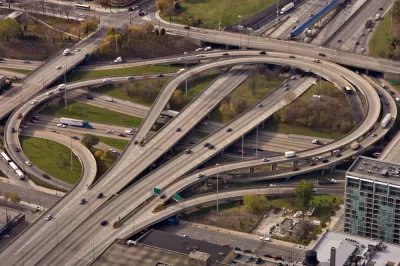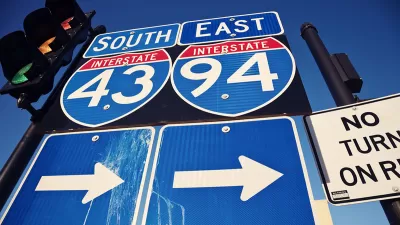A coalition of environmentalists, civil rights activists, and other community interests teamed up to successfully oppose a Milwaukee highway widening proposal. In an interview, one of the leading lawyers discusses his work.

Throughout the past year, a coalition of activists organized against a widening proposal for the I-94 through Milwaukee. The state recently abandoned the project. Here, Angie Schmitt interviews Dennis Grzezinski, an environmental attorney who led the charge. "In his most recent win, representing the Milwaukee chapters of the NAACP and the Sierra Club, Grzezinski took Wisconsin DOT to federal court over a $1.1 billion urban highway widening project."
According to Grzezinski, the money that's been poured into highway widening can exacerbate social problems like segregation by race and income. Billions of dollars for more highways, he says, allow "richer people to flee in the evening — concentrating poverty and social problems."
Grzezinski discusses how interest groups can form common cause against projects they oppose, bettering their chances in court. "It's really, really important to be involved as early in the project as possible, following the initial notice that they're looking at a project. It's really important to weigh in with comments. I found it really important to develop coalitions of organizations — to get the whole range of interested community players involved, in attending public hearings and public minutes."
FULL STORY: Meet the Lawyer Taking on Wisconsin’s Highway Lobby — And Winning

Planetizen Federal Action Tracker
A weekly monitor of how Trump’s orders and actions are impacting planners and planning in America.

The Simple Legislative Tool Transforming Vacant Downtowns
In California, Michigan and Georgia, an easy win is bringing dollars — and delight — back to city centers.

San Francisco's School District Spent $105M To Build Affordable Housing for Teachers — And That's Just the Beginning
SFUSD joins a growing list of school districts using their land holdings to address housing affordability challenges faced by their own employees.

In More Metros Than You’d Think, Suburbs are Now More Expensive Than the City
If you're moving to the burbs to save on square footage, data shows you should think again.

The States Losing Rural Delivery Rooms at an Alarming Pace
In some states, as few as 9% of rural hospitals still deliver babies. As a result, rising pre-term births, no adequate pre-term care and "harrowing" close calls are a growing reality.

The Small South Asian Republic Going all in on EVs
Thanks to one simple policy change less than five years ago, 65% of new cars in this Himalayan country are now electric.
Urban Design for Planners 1: Software Tools
This six-course series explores essential urban design concepts using open source software and equips planners with the tools they need to participate fully in the urban design process.
Planning for Universal Design
Learn the tools for implementing Universal Design in planning regulations.
Smith Gee Studio
City of Charlotte
City of Camden Redevelopment Agency
City of Astoria
Transportation Research & Education Center (TREC) at Portland State University
US High Speed Rail Association
City of Camden Redevelopment Agency
Municipality of Princeton (NJ)




























